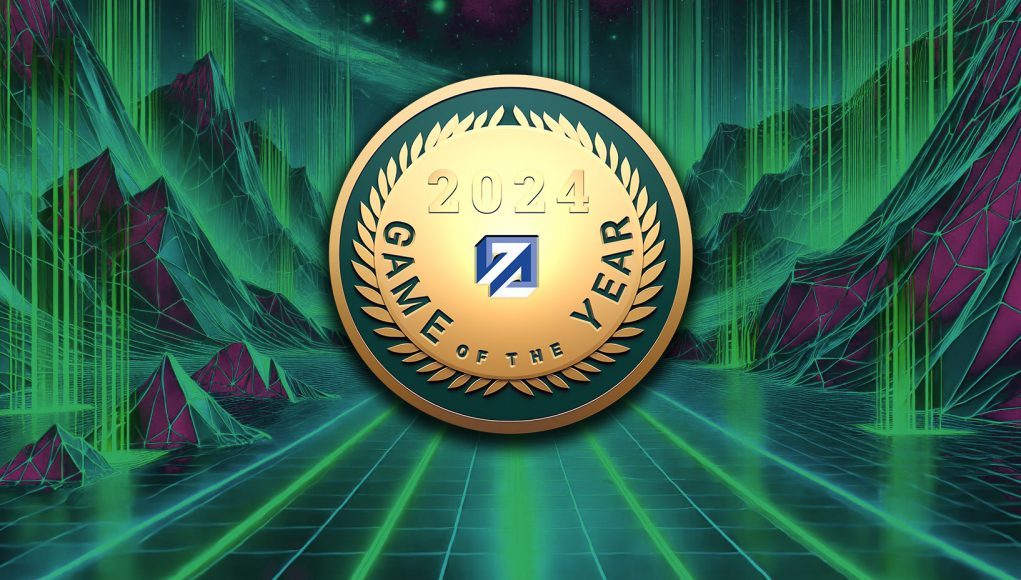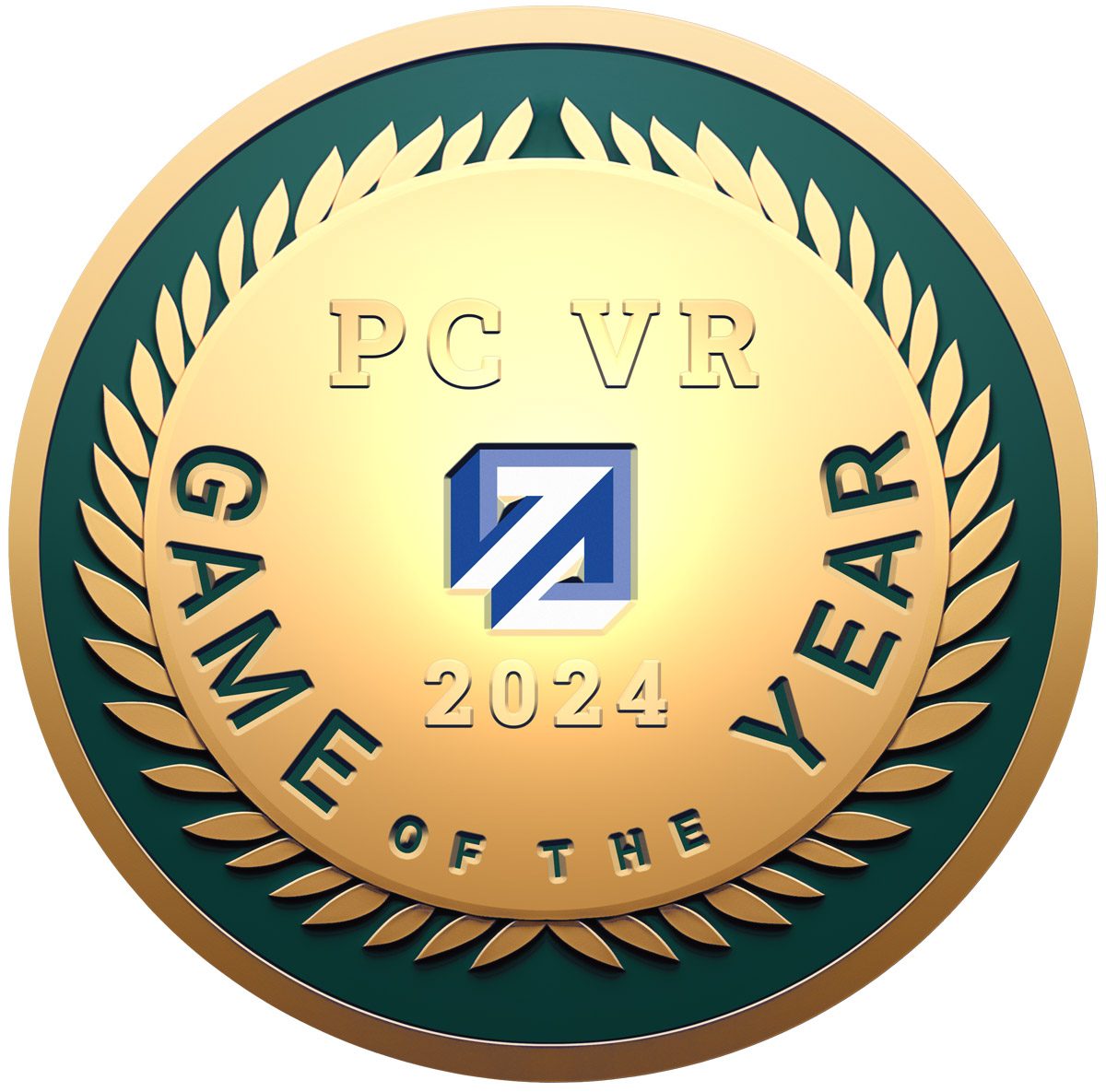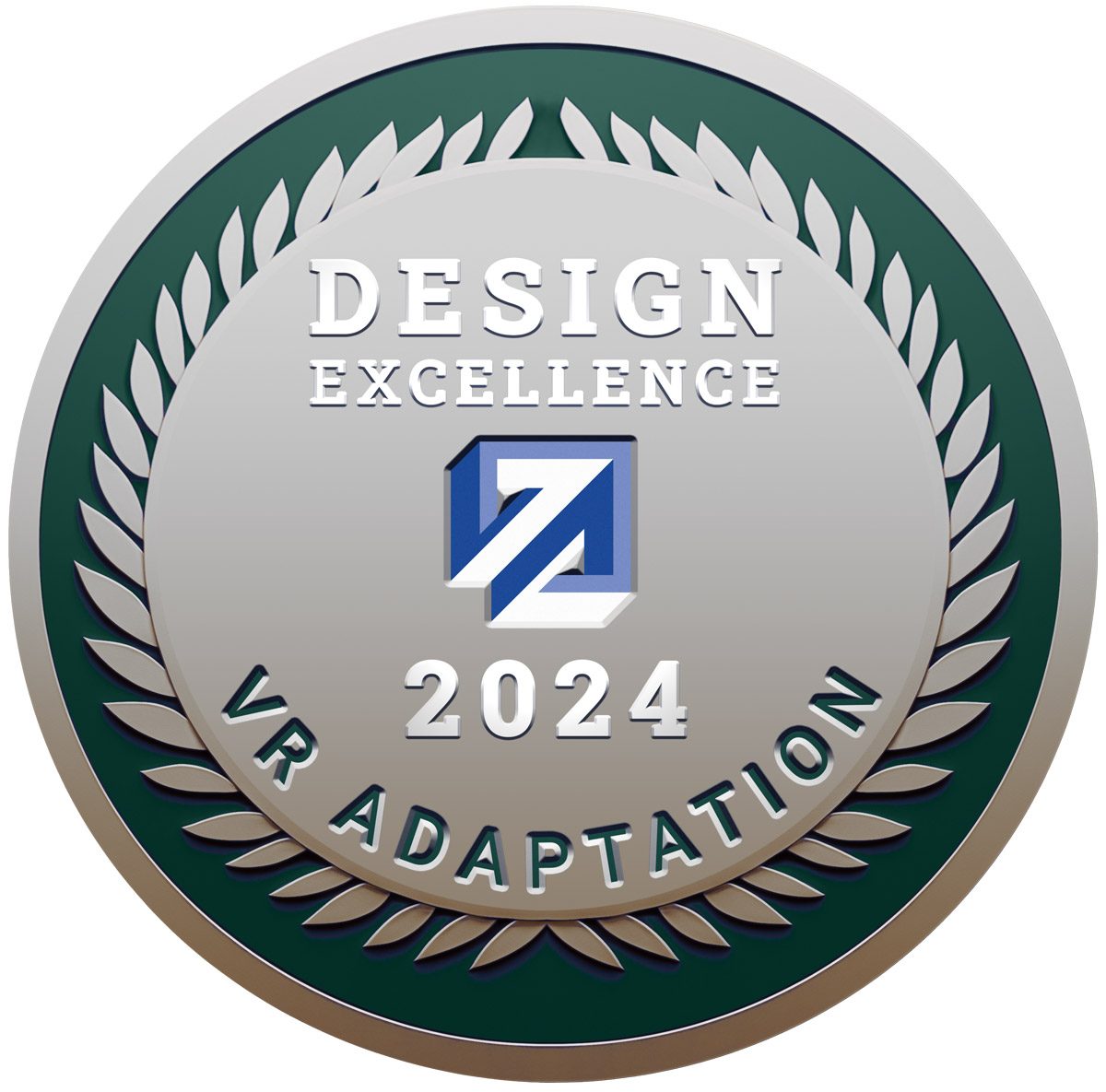Here we are, another year deeper into the most immersive medium that refuses to stand still. Far from fading away, over its nearly decade of existence VR has continued to evolve in ways both subtle and seismic, redefining what’s possible in gaming, creativity, and connection.
2024 has been a year of milestones, where the long-promised potential of VR is becoming ever more undeniable. It’s not just about more ‘AAA’ games—although that doesn’t hurt. This year, we’ve seen the release of highly-anticipated titles and ambitious indie projects alike, each proving that VR isn’t a niche within a niche, but something both profitable for developers and gamers alike.
What sets this year apart is the growing focus on refinement. Developers are leveraging lessons learned over the past decade to push VR into a new era of comfort, immersion, and accessibility. Whether it’s groundbreaking mechanics, unforgettable narratives, or immersive visuals that make you feel truly present, 2024 has given us a lot to celebrate—and a lot to look forward to.
And with that, here’s Road to VR’s 2024 Game of the Year Awards:
Game of the Year
Skydance’s Behemoth
Developer: Skydance Games
Available On: Quest, PSVR 2, PC VR
Release Date: December 5th, 2024
PC VR games play a unique role. In comparison to Quest, by far the most populous standalone VR platform out there, and PSVR 2, which exists thanks to clever optimization of PS5, PC VR gives power users the freedom to push their hardware to the max and squeeze out every last pixel.
Immersion is more than just visuals though. It’s about creating a solid world that players intuitively understand, NPCs that feel authentic, soundscapes that envelope, and set pieces that make you say “damn”. There are are a handful in VR’s relatively short history that achieve that heady mix, and even fewer that reach the immersive heights of Skydance’s Behemoth.
It’s really no wonder though how Behemoth nailed so much of the hard-won lessons in VR design though. Skydance Games is the same studio behind The Walking Dead: Saints and Sinners (2020), which not only informed Behemoth’s physics-based melee, but also the depth of immersive worldbuilding we come to expect from anything following Saints & Sinners.
And all of that is apparent even before you get to your first Behemoth battle, which smartly pushes the user to combine every skill they learn along with way, from climbing and swinging with a grappling hook, to nailing far away shots with your trusty bow. In the end, how you dispatch everything else is up to you; use on of the game’s three Legendary weapons, which are all worth upgrading, or have a go at the game’s spry baddies with their own gear, including everything from katanas, throwable daggers, to even an absolutely massive buster sword that has both a real weightiness and real power behind it.
Behemoth contains so much of what makes VR gaming great, which not only rates it our top pick for our PC VR award this year, but also handily puts it on our shortlist of must-play VR games. Find out more in our full (no spoilers) review.
Batman: Arkham Shadow
Developer: Camouflaj
Publisher: Oculus Studios / Meta
Available On: Quest 3/S (exclusive)
Release Date: October 21st, 2024
Batman: Arkham Shadow is a game that probably shouldn’t exist. It was a risky revival of franchise that hadn’t seen a mainline entry for nearly a decade. It wasn’t made by any of the studios that made the beloved originals. And its deeply established gameplay tropes needed to be completely redesigned for VR.
But somehow, against all of those challenges, developers Camouflaj not only made Batman: Arkham Shadow, they made a game good enough to be our 2024 pick for Quest Game of the Year.
The studio clearly understood the assignment. It wasn’t about taking an Arkham game and porting to VR. Instead, Camouflaj undertook the tricky task of sussing out what makes an Arkham game feel like an Arkham game, and then retain those elements while simultaneously throwing out the playbook on the franchise’s existing mechanics.
Everything had to be rethought for VR. But perhaps the most daunting one was the signature Arkham beat-em-up combat, wherein Batman deftly maneuvers through throngs of enemies—part boxer, part ninja—dealing with one threat while keeping another at bay, until the whole room has been dispatched.
The studio came up with quite a novel solution that fused instructed motion with locomotion, giving the player the ability to zoom toward enemies with a swing of their fist. This formed the basis of the game’s thrilling combat that—in true Arkham style—steadily grows more complicated as the game goes on. By the end, you feel like you can take on an entire army of baddies.
I could go on about all the design challenges the studio faced (actually I already did…), but when it’s all said and done, Batman: Arkham Shadow is one of Quest’s best games to date.
Metro Awakening
Developer: Vertigo Games
Available On: PSVR 2, Quest, PC VR
Release Date: November 7th, 2024
The Metro series has always been known for its immersive, post-apocalyptic vibes. The kind of game that’s made people say “this would be so good in VR!” for years. And in 2024, those people were proven right.
It might seem odd that with the completely blank canvas of virtual reality, people would choose to be transported to a world as gritty and desperate as Metro Awakening. I mean, we could just be playing ‘Puppy Sim 2079’, right?
But we have Vertigo Game’s extensive VR experience to thank for making this bleak world something that’s somehow actually fun. Similar to Batman: Arkham Shadow, the developer did a fine job of understanding what makes a Metro game feel like a Metro game, and bringing that essence to VR while completely redesigning things to feel native to VR.
In particular, the game brings a brand new set of undeniably cool weapons which feel particularly interactive thanks to VR. The crossbow with its bolt cradle and the shotgun with its exposed drum magazine are some of the most interesting VR weapons we’ve seen in years. It’s not just that they’re creatively designed, but also that their designs feel so true to the cobbled-together, homemade weaponry of the series at large.
And they’re just plain-old satisfying to shoot. That’s thanks to the game’s enemies that feel both threatening to the player but also fragile (like things made of meat and bone usually are, in the face of high speed projectiles). It’s satisfying to drop an enemy from the shadows with a single silent crossbow bolt. And it feels all the more visceral knowing that if you miss, you won’t last long yourself without jumping behind cover.
Satisfying, interactive weapons weren’t the only place where the game excellent in a VR-specific way. Vertigo Games also came up with a clever, diegetic inventory system. Instead of selecting a weapon from some kind of floating menu with a laser pointer, the game gives the player a backpack on each shoulder. One carries the player’s weapons and the other has the remaining key inventory items like grenades and gas mask canisters.
Retrieving the right item from your inventory is as natural as pulling out the backpack and grabbing the item you want. Unlike similar systems in other games, the items in the backpack don’t shrink down or become ‘iconified’; they remain full-sized, adding to the sense of realism and immersion. The game’s ambient noise and atmospheric visuals are another plus for immersion in the game. The lurking sounds create a constant, smoldering sense of dread—like there could be something skulking around any corner.
 Metro Awakening is also the receipt of our Excellence in Immersion award. While it’s a fun game overall, our enjoyment was driven by its immersive design. Between the diegetic inventory, uniquely interactive weapons, threatening but fragile enemies, and a consistently creepy atmosphere that keeps you on your toes, Metro Awakening is an experience that sticks with you.
Metro Awakening is also the receipt of our Excellence in Immersion award. While it’s a fun game overall, our enjoyment was driven by its immersive design. Between the diegetic inventory, uniquely interactive weapons, threatening but fragile enemies, and a consistently creepy atmosphere that keeps you on your toes, Metro Awakening is an experience that sticks with you.
Starship Home
Developer: Creature
Available On: Quest 3/S (exclusive)
Release Date: September 26th, 2024
We’re still far from VR headsets (namely Quest 3) being being able to truly ‘understand’ your physical space, which you might argue is holding mixed reality back from realizing its full potential. While many developers were quick to co-op MR for mini-games or extra modes in their larger, more impressive VR titles, or use it as a background so you can play contained experiences in your living room, there are comparatively few that dove head-first into the medium.
Because of this, we’ve never actually highlighted a mixed reality game in our Game of the Year Awards simply because there were so very few that pushed the room-sensing capabilities of Quest to its very real boundaries. That changes with Creature’s Starship Home, which not only feels like they’ve pushed the envelope on what’s possible in mixed reality right now, but made a game that’s truly worth playing on its own merits.
In short: Starship Home marks the first important step into making MR indispensable, and not just a fun add-on.
To boot, the game’s fun and quirky mishmash of casual ship management and sci-fi plant gardening puts it on even playing field with generations of VR games, while at the same time making MR uniquely additive to the whole experience.
Starship Home cleverly breaks all of its system controls into modules that you can place around your room, which includes viewing windows to complete the illusion that that your space has really turned into your own escape pod from reality. In fact, its modules work so well in MR, that we’re betting on more games taking this approach in the future. Find out more about why we loved Starship Home in our full review.
UNDERDOGS
Developer: One Hamsa
Release Date: January 25th, 2024
Our award for Excellence in Locomotion and Excellence in Indie Development both go to UNDERDOGS, the latest title from One Hamsa, an independent studio that’s brought two very unique games to VR over the years.
It might seem ironic that our pick for this year’s Excellence in Locomotion award is being given to a studio whose first game had no player locomotion at all. That would be Racket: Nx (2017), the first VR game from One Hamsa.
But if you look a little closer, it’s plain to see that while Racket: Nx has no locomotion, the game is built entirely around this fact. The spherical arena puts gameplay all around the player, and asks them to spin in place as they track the ball and bounce it around to rack up a high score.
In that way, the decision to have no locomotion in Racket: Nx is actually fundamental to the gameplay.
So it should come as no surprise that the choice of locomotion in the studio’s latest game, Underdogs, is just as fundamental. It’s clear the studio figured out first and foremost how players would move in its next game, and then skillfully built gameplay around it.
While there are now many games that use ‘arm-based locomotion’ few contextualize it so expertly. In Underdogs, players control stubby mechs that use their arms to pull themselves along the ground. The way you can use your arms to fling and glide your mech from place to place almost feels like ice skating at times—impressive agility considering you’re piloting a hulking hunk of scrap. But your arms are also your weapons (thanks to attached saw blades), making moving or attacking an interesting choice at any given moment.
Alas, you can also use the game’s locomotion as an attack by flinging yourself into enemies, which feels like a sumo wrestler bouncing an opponent out of the ring. And it’s more than just great fun; making player-to-enemy collision part of the gameplay also drives a sense of embodiment in a way that few VR games do. Play enough and you’ll start to feel like the mech’s body and arms are you own (even though you’re just the pilot).
Delivering innovative movement and innovative combat in a single title is what earned Underdogs both Excellence in Locomotion and Excellence in Indie Development awards.
Blade & Sorcery
Developer: Warpfrog
Release Date: June 17th, 2024
From the outset, Warpfrog’s sole developer ‘KospY’ could have well left Blade & Sorcery alone, letting it rest on its laurels as a super moddable (and super bloody) physics-based combat sandbox. After all, it went viral upon its Steam Early Access release in 2018 for doing just that, and giving players some of the most visceral melee combat VR had to offer—true then and now.
Throughout the years of continuous updates, the studio grew to nearly 30 people though, who were dedicated to refining the game’s immersive combat, bringing even more adventure-themed maps, weapons, powers, and a load of custom-built assets to replace off-the-shelf stuff—all of it so thoroughly ready for something to tie it all together and give meaning to the carnage.
We all knew Blade & Sorcery needed a common world, an engaging story, upgrade systems—it needed to push out an update an order of magnitude larger than those before it to take it to new heights. Enter Blade & Sorcery’s long-awaited 1.0 update released in June, which capped off the already wildly successful game with its ‘Crystal Hunt’ story-based mode.
Yes, we said “capped off,” as the game is now considered ‘complete’, including not only all of the stuff that made it great in the first place, but an authentic world to put all of those skills to the test. Warpfrog is far from done with physics-based combat though, it seems, as the studio announced it has plans to release its next title, which it says is using all of the experience it’s acquired across the years. Kudos to Warpfrog for making good on its promise, and seizing on its popularity with even grander visions.
Trombone Champ: Unflattened!
Developer: Flat2VR Studios, Holy Wow Studios
Publisher: Flat2VR Studios
Available On: Quest, PC VR, PSVR 2
Release Date: November 26th, 2024
Trombone Champ is silly fun, having taken the rhythm genre by storm with its wonky tromboning action upon its release on Steam in late 2022. Shortly after, it became a viral hit all over social media.
Developer Holy Wow Studios isn’t a VR studio though, which is where Flat2VR comes in. Originally a passion-driven modding group, as the studio’s name suggests Flat2VR makes ‘flat’ games into VR titles, which now includes over 30 games ported to headsets, such as unofficial ports of Half-Life 2 and Doom.
Now, as a trombona fide studio in its own right, Trombone Champ: Unflattened! marks the first title in a slew of official ports to come from Flat2VR, which includes upcoming ports of WRATH: Aeon of Ruin (2024), Roboquest (2023) and Flatout (2004).
Since Trombone Champ is inherently a 2D experience, porting it to headsets wasn’t as ‘simple’ as injecting VR cameras into the game and building out systems to play nice with 6DOF controls however. Instead, Trombone Champ: Unflattened! rebuilt the original’s gameplay from the ground-up, letting users play the trombone in front of a live audience, meanwhile maintaining all of the charm of the original whilst upping the stakes by making you control the trombone’s trombone’s slide by hand.
Trombone Champ: Unflattened! bodes well for Flat2VR; early this month we noted that it’s done very well, nabbing the game 4.9 out of 5 stars on Quest, a 100% positive rating on Steam, and a 4.9 out of 5 stars on PSVR 2. If any of its other upcoming ports are half as good as Trombone Champ: Unflattened!, we’re expecting even more traditional studios will take note of the studio’s clearly expert porting chops.
Note: Games eligible for Road to VR‘s Game of the Year Award must be available to the public on or before December 20th, 2024. Games must also natively support the target platform as to ensure full operability.














